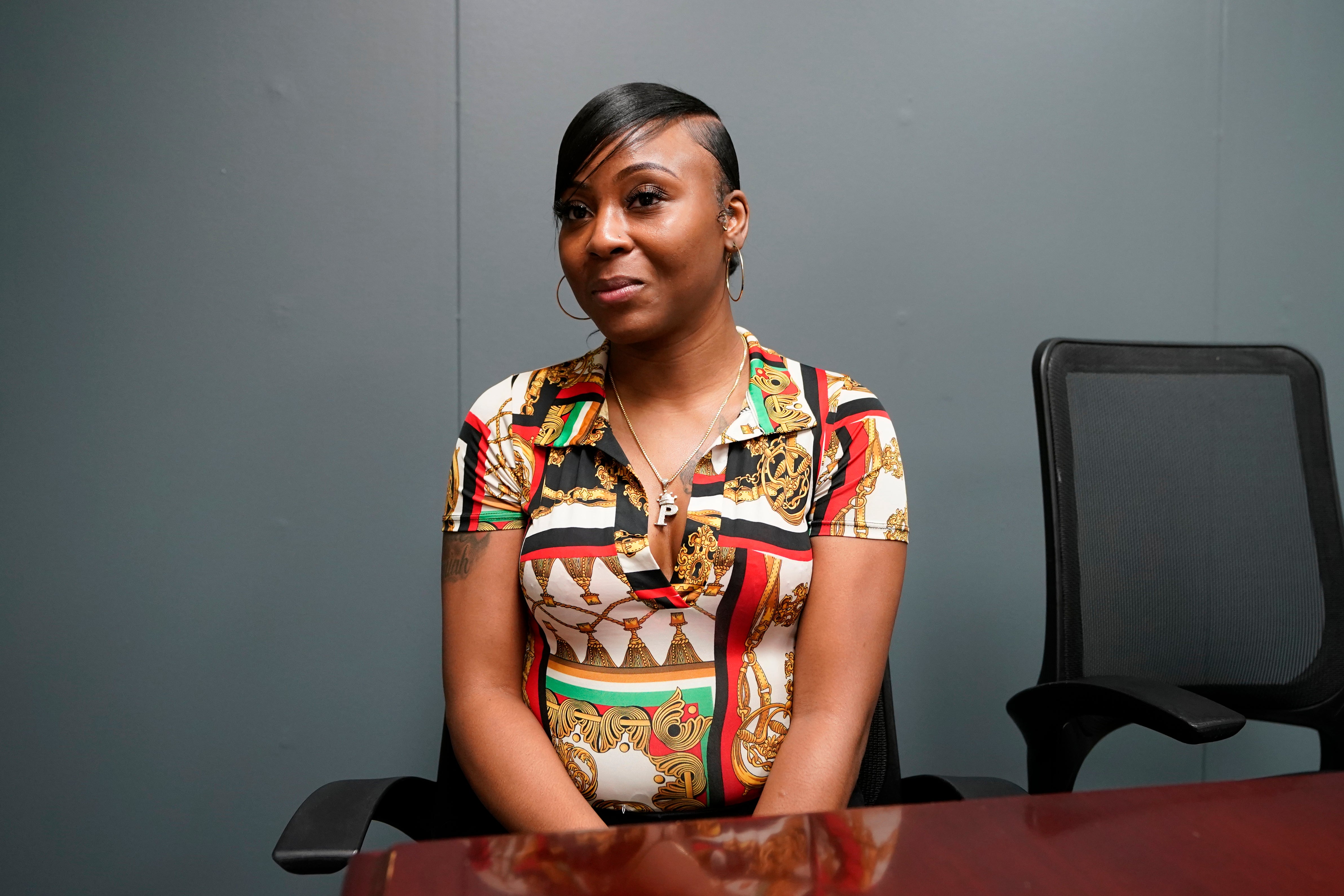Detroit police changing facial-recognition policy after pregnant woman says she was wrongly charged
The Detroit police chief says he’s setting new policies on the use of facial-recognition technology

Your support helps us to tell the story
This election is still a dead heat, according to most polls. In a fight with such wafer-thin margins, we need reporters on the ground talking to the people Trump and Harris are courting. Your support allows us to keep sending journalists to the story.
The Independent is trusted by 27 million Americans from across the entire political spectrum every month. Unlike many other quality news outlets, we choose not to lock you out of our reporting and analysis with paywalls. But quality journalism must still be paid for.
Help us keep bring these critical stories to light. Your support makes all the difference.
The Detroit police chief said he's setting new policies on the use of facial-recognition technology after a woman who was eight months pregnant said she was wrongly charged with robbery and carjacking in a case that was ultimately dismissed by prosecutors.
The technology, which was used on images taken from gas station video, produced leads in the case but was followed by “very poor” police work, Chief James White said.
“We want to ensure that nothing like this happens again," White said Wednesday.
His comments came two days after the American Civil Liberties Union of Michigan announced a lawsuit on behalf of Porcha Woodruff, a 32-year-old Black woman, who was arrested in February while trying to get children ready for school. There have been two similar lawsuits against Detroit.
Woodruff was identified as a suspect in a January robbery and carjacking through facial-recognition technology. She denied any role. The Wayne County prosecutor's office said charges later were dropped because the victim did not appear in court.
White said his officers will not be allowed "to use facial-recognition-derived images in a photographic lineup. Period.”
He said two captains must review arrest warrants when facial technology is used in a case, among other changes. The new policies will be presented to the Detroit Police Board of Commissioners.
White said there must be other evidence, outside the technology, for police to believe a suspect had the "means, ability and opportunity to commit the crime.”
Critics say the technology results in a higher rate of misidentification of people of color. Woodruff’s lawsuit says facial recognition identified her, although the victim had never described the carjacker as visibly pregnant.
She spent hours in jail following her arrest.
“It’s particularly difficult when you’re talking about someone who was eight months pregnant, so we empathize with that,” White said. "We recognize we have to do better and there will be accountability on this mistake.”
Subscribe to Independent Premium to bookmark this article
Want to bookmark your favourite articles and stories to read or reference later? Start your Independent Premium subscription today.